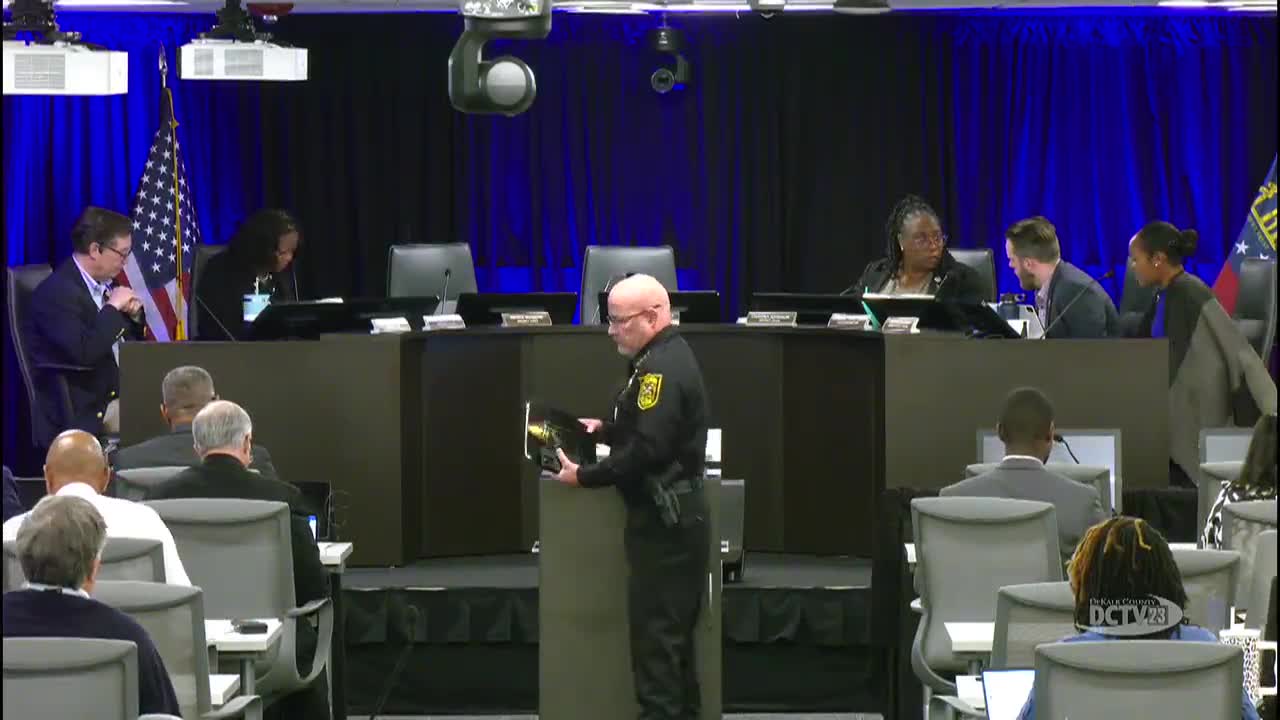DeKalb commissioners defer vote on police community advisory board to Nov. 18 after extended debate
Get AI-powered insights, summaries, and transcripts
Subscribe
Summary
The Employee Relations & Public Safety Committee delayed action on a resolution to establish a standing community advisory board for the DeKalb County Police Department, asking staff and stakeholders to refine membership criteria, training expectations and operational details.
The Employee Relations & Public Safety Committee of the DeKalb County Board of Commissioners on Wednesday deferred consideration of a resolution to establish a standing community advisory board for the DeKalb County Police Department to Nov. 18 after extended discussion with police leadership, the Fraternal Order of Police and multiple commissioners.
Supporters of the resolution said the board would promote transparency and community trust, and cited national best practices. Opponents and some police leaders warned the new body could be seen as an additional layer of oversight without clear training and membership rules.
The resolution’s sponsor, Commissioner Terry, told the committee the idea is based on national accreditation best practices and is intended to increase transparency. “CALEA, through the certification process, includes civilian panels to review police department performance on community engagement, which is widely recognized as a best practice,” Terry said during debate.
The Fraternal Order of Police, represented by Lieutenant Hillis, who identified himself as president of the DeKalb Fraternal Order of Police, said the group supports the concept but urged clearer expectations for members. “One of the issues… is there’s a high failure rate among these types of committees,” Hillis said, adding that members should understand the board’s advisory role and receive training or a curriculum so they can provide informed feedback.
DeKalb Police leadership said the department already runs an extensive program of community engagement and recommended building on existing efforts before creating a new standing board. The police chief told the committee that in 2024 the department held more than 170 community meetings across precincts, operates a Citizens Police Academy and a volunteers-and-police- services ambassador program, and believes such existing programs provide community input. The chief warned that if a new advisory board becomes perceived as oversight without technical training, it could negatively affect officer morale.
Several commissioners said they favored a structured approach that would require prospective advisory-board appointees to complete the Citizens Police Academy or similar training before serving. “If the Citizens Police Academy is so great and does all the training, then that’s exactly who you want to be on this board,” Commissioner Terry said during discussion, offering to incorporate training requirements into membership criteria.
Committee members asked staff and the law department to draft detailed membership, training and operational guidelines and return to the committee with revisions. The committee voted to defer the resolution to the Nov. 18 Employee Relations & Public Safety meeting to allow the law department and police to develop the proposed structure and respond in writing to concerns raised.
Votes and formal action: The committee voted to defer the resolution to Nov. 18. The motion to defer was made during the meeting and carried by voice vote; the mover and seconder were not specified in the transcript.
Why it matters: The proposal would create a continuing, county-level forum for citizen input on policing policies and practices. Commissioners, police leadership and the Fraternal Order of Police agreed on the goal of stronger community–police understanding but differed on design, training, and potential effects on officer morale.
Next steps: Staff from the law department and the police department will prepare a written response and revised redlined resolution that specifies membership criteria, required training (the committee discussed requiring completion of the Citizens Police Academy), and operational procedures for consideration at the Nov. 18 committee meeting.
